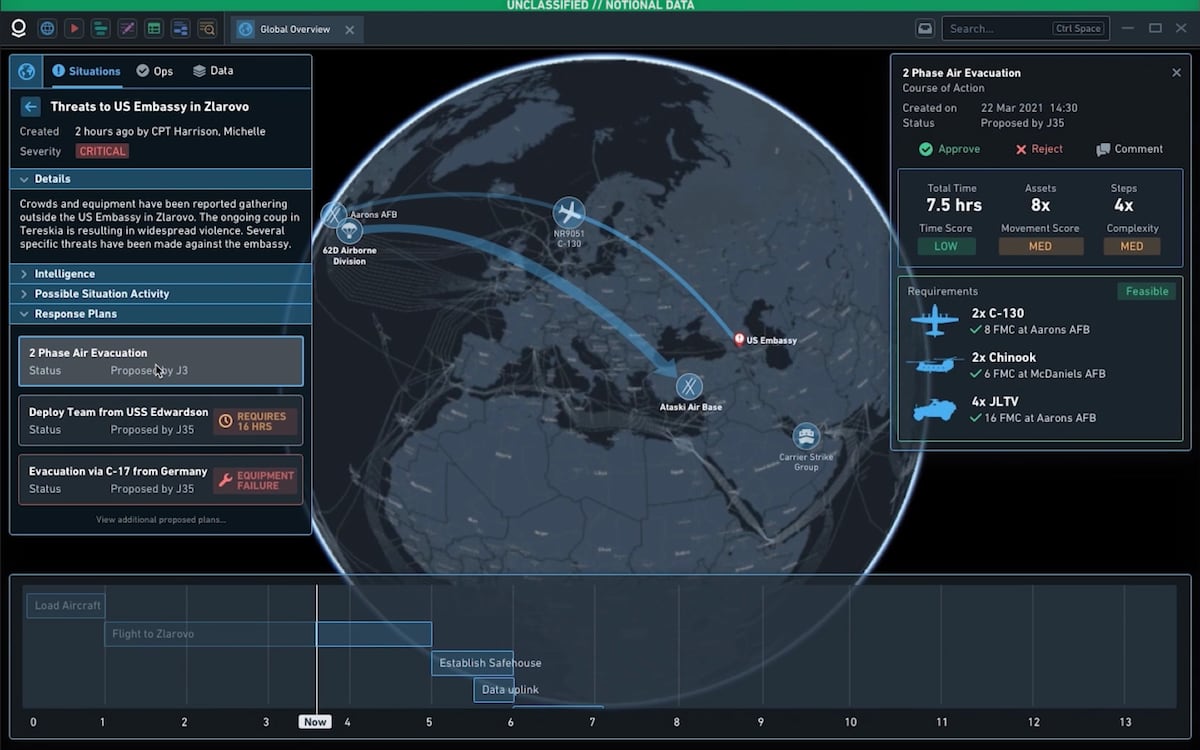The U.S. Army has awarded Palantir a $400.7 million contract to continue providing its artificial intelligence-enabled Vantage system as the service’s main data platform, the company announced Wednesday.
The contract covers a period of up to four years and could ultimately be worth nearly $620 million if additional options are exercised.
The service first brought Palantir on to provide its Army Data Platform, or ADP, in 2018, taking roughly 180 disparate data sources across the enterprise and consolidating them into one ecosystem.
“The Army has leveraged Palantir’s software to transform how it uses data and artificial intelligence (AI) to more effectively perform essential missions and enable faster decision-making across the force,” the Dec. 18 company statement reads.
The capability grew from a focus on a data platform that could help understand personnel and combat readiness to a system that “powers warfighters at every echelon and supports a diverse set of use cases across every data domain including readiness, logistics, recruiting, force management, talent management, financial management, risk management and installation management,” according to the statement.
The Army plans to continue to grow the capability.
“Our continuous addition of new AI capabilities enables the Army’s own ability to develop applications and incorporate the benefits of effective data analysis across nearly every high-priority mission in the Army,” Akash Jain, Palantir USG president, said in the statement.
As emerging technologies are developed, they will be introduced into Vantage on a continuous basis, according to the company.
Vantage now has over 100,000 users within the service and that number is growing, Palantir said.
Palantir’s business with the Defense Department and particularly with the Army has grown dramatically since 2018 when it won, in a head-to-head competition with Raytheon, a contract to provide the Army a new tactical version of its Distributed Common Ground System-Army, or DCGS-A, an intelligence analysis platform.
The company famously sued the Army over its DCGS-A procurement strategy in 2016 — and won — prior to scoring the new contract for the system.
Since then, the Army has taken different approaches in how it procures software capabilities and is developing a software acquisition policy that outlines how to best work with the software industry to obtain the right capability for the service at a much faster pace.
Jen Judson is an award-winning journalist covering land warfare for Defense News. She has also worked for Politico and Inside Defense. She holds a Master of Science degree in journalism from Boston University and a Bachelor of Arts degree from Kenyon College.
Read the full article here







